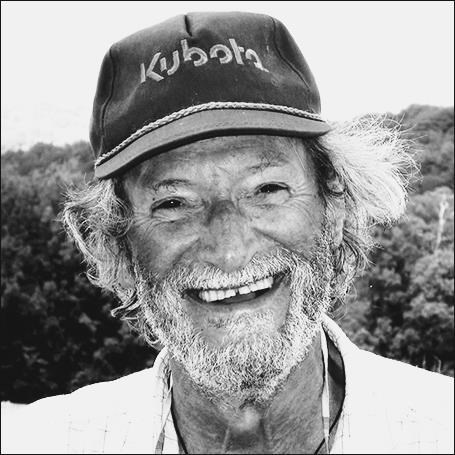In Memoriam | Arthur Steinberg, 1937-2022
Writers: Frederica Steinberg and Jean Jackson, Professor of Anthropology emerita | Edited by MIT SHASS Communications
May 12, 2022

Arthur Richard Steinberg, a nationally recognized educator and professor emeritus of anthropology at MIT, died April 3, 2022. He was 85. A cofounder of the Center for Materials Research in Archaeology and Ethnology as well as the founder of an innovative interdisciplinary program for MIT’s first-year students, Steinberg had been a faculty member at the Institute for 38 years when he retired in 2002.
Steinberg’s commitment and skill as a teacher were legendary. Open, gracious, and receptive to students, he saw them as “co-conspirators” in the educational process — a viewpoint that gained him an enviable reputation. A valuable role model and superb mentor, Steinberg was known for debate, give-and-take, and playful controversy. Students wanted to hang out with him and often praised his support, both in and out of class.
Born on March 23, 1937, in Zurich, Switzerland, Steinberg emigrated to the United States in 1938 with his parents, Lotti Stern and William Steinberg, and his sister, Silvia, who had all left Germany in 1936.
Steinberg attended the Park School in Buffalo, New York, and then Harvard University, where he majored in Greek and Fine Arts with an emphasis on Greek archaeology. He graduated magna cum laude in 1958. After a year at the American School of Classical Studies in Athens, Greece, he began graduate work in classical archaeology at the University of Pennsylvania. He wrote his dissertation on the Etruscan bronzes from the Bernardini Tomb in Praeneste. During this time, he taught at Haverford College.
In 1961, Steinberg was awarded a fellowship to the American Academy in Rome, Italy, to work on his PhD. He met Frederica (Freddy) Maher during that year; they married in 1962, and he received his PhD in 1963.
Steinberg came to MIT in 1964 as an assistant professor of history and archaeology. He joined the newly formed Anthropology/Archaeology Program in 1970. In 1977, Cyril Stanley Smith, Heather Lechtman, and Steinberg founded the Center for Materials Research in Archaeology and Ethnology, which today is a consortium of eight Boston institutions focused on understanding prehistoric and non-industrial societies through the analysis of materials associated with human activity.
Steinberg received tenure in 1972 and was promoted to full professor in 1994. His main scholarly interests early on focused on ancient technologies, particularly metallurgy and ceramics, including Mesopotamian ceramic technology. He joined archaeological expeditions in Cyprus, Turkey, and Greece. He also developed an interest in 16th century Venetian oil painting.
Over the years Steinberg taught a wide variety of subjects, including Decline of Empires as well as Religion and Science. In 1988 he began the Integrated Studies Program (ISP), which offered first-year students the possibility of choosing an alternative curriculum. ISP’s mission was to teach MIT’s core subjects in tandem with an examination of the relationships between technologies and cultures. ISP’s John Dewey-inspired “learning-by-doing” approach utilized a wide-open, very interdisciplinary curriculum that bridged technology and humanism—an approach that was ultimately embraced by numerous educational institutions. Such worked helped Steinberg to become a nationally recognized educator.
Throughout his academic career Steinberg’s pedagogical work, like his research, stressed innovation, inclusivity, and expansive approaches. His interest in undergraduate education at MIT and in pedagogical innovation were evident from the beginning, and he was appreciated by many of his MIT colleagues — in the School of Humanities, Arts, and Social Sciences, in the School of Engineering, and elsewhere. In 1991, he was chosen to be the first Class of 1960 Fellow, and in 1995 he was awarded a Margaret MacVicar Fellowship “in recognition of sustained and significant contributions to teaching and undergraduate education at the Institute.”
The son of a conductor of the Boston and Pittsburgh symphony orchestras, he had a prodigious knowledge and appreciation of classical music. His many other interests included motorcycles, forging, fencing, poetry, and jewelry-making. In 2019 he and his wife independently published a novel, The Soul of Venice.
MIT friends and colleagues remember Steinberg for his insatiable curiosity, his zest for life, and his marvelous sense of humor; he was known to be a warm, caring, spirited, optimistic person who enjoyed a good laugh. He also had a vast intellect, friends say, and at appropriate moments a rebellious attitude toward convention and bureaucracy.
He is survived by his wife, Frederica (Freddy), sons Daniel and Alex, and grandchildren Jake, Maya, Julia, and Jack.
